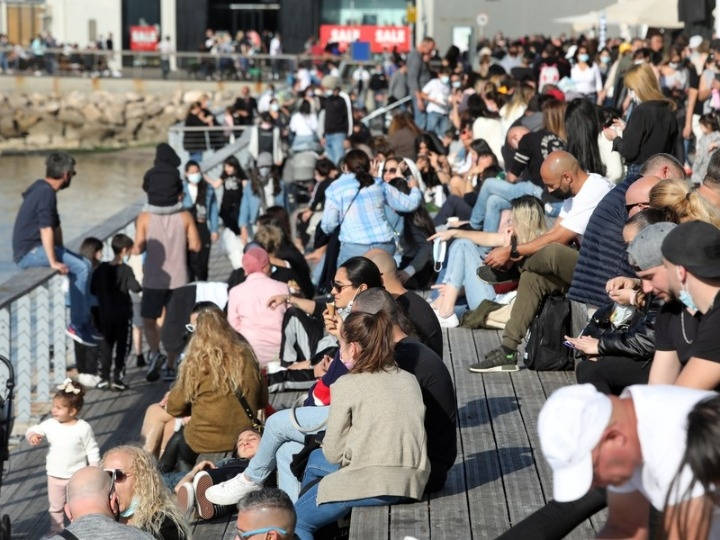The peace accords in the Gulf region have unlocked their power as curious Israelis rush to explore a new destination—UAE and the two nations begin to think of trade. Israelis are visiting the UAE on an unprecedented scale at a time when a coronavirus-struck world is venturing out with caution and international travel is still under restrictions.
UAE newspaper Khaleej Times quoted Eitan Na'eh, the newly-appointed head of mission of the Israeli embassy at Abu Dhabi, as saying that nearly 1,30,000 Israeli tourists have visited the UAE in just three months.
In a historic deal in August 2020—called the Abraham Accords—the UAE and Israel established diplomatic relations. On November 26 the first flight brought the Israelis to UAE and since then the tourism sector has boomed in unprecedented ways. This January Israel opened up its embassy in Abu Dhabi after a nod from the UAE cabinet.
The Israelis are soaking in the cosmopolitan Emirati sun. They are holding Jewish weddings, celebrating their festivals and have, in fact, brought their culture and way of life to Dubai—acknowledged as an international travel and business destination with open restaurants, huge malls and a variety of attractions. With coronavirus vaccinations in full swing in both countries, the tourist flow from Israel to UAE will increase further as the threat of the infection recedes.
The locals have responded to the influx of Israelis by opening up kosher restaurants and tuning their kitchens to cater to the tastes of the new travellers. Keeping local sensibilities and a vastly different culture in mind, the Israelis too are adapting. They are learning not to kiss in the public and not to display any mannerisms that might offend their hosts.
The two countries have opened up air and sea routes. The Israeli ambassador says they also plan to start roadways to boost trade and commerce. Na'eh said: "Now we are looking into the potential of trailers and lorries carrying goods from the UAE reaching Israel in three days and vice versa in the near future."
The governments have already signed treaties related to direct flights, decided on visa-free travel and plan to have tie-ups in the fields of science and technology, research and development. The two nations are also looking at mutual investments.
The burgeoning UAE and Israel ties have come at the cost of other relationships. Pakistan has been dropped from the list of friendly countries. At the moment Pakistanis cannot enter the UAE owing to visa restrictions due to the ongoing coronavirus pandemic. This is likely to hit the Pakistani economy as the UAE has been Pakistan's second-largest source of remittances.
There are myriad reasons for keeping Pakistanis out of the UAE.
One is the threat perception to UAE from militant Pakistani nationals who might harm the visiting Israelis. The other is the Pakistan government's public "no" to recognising Israel contradicting UAE's own stand towards Israel. Pakistan Foreign Minister Shah Mahmood Qureshi's visit to Dubai in December did not help sort out matters.
Pakistan's proximity towards Turkey is another reason that many Gulf nations are unhappy with it. At home, the opposition is tearing into Prime Minister Imran Khan's feeble and directionless foreign policy while the people are worried about the jobs in the Gulf.
Meanwhile, UAE travel companies are readying themselves for a foray into Israel as a tourist and business destination.




















